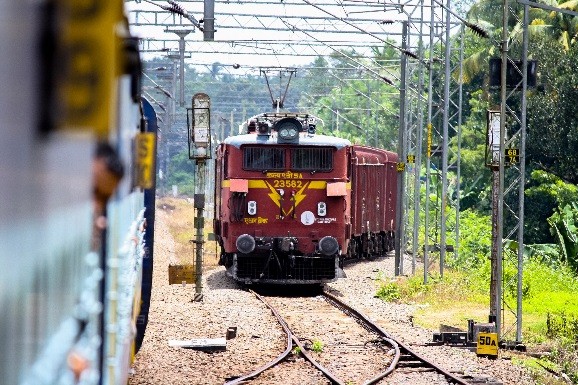India’s economic growth is directly proportional to its logistics efficiency.
To realize the true potential of India as one of the largest economies, it needs to be supported by similar path breaking infrastructures, such as ports, especially road – rail – coastal shipping connectivity to ports.
For a country like India, rising as the second fastest developing economy in the world after China and with a more robust government at the centre under the leadership of a forward thinking prime minster, the entire economy is poised to see a surge of fast paced growth in coming years. This advantage is enhanced by our country’s strategic location and with over 7,000 kms of coastline as our border. Historically across developed nations in Europe, APAC and USA the economic activity has always been the result of an efficient logistics value chain of the country. This is also true for India. Logistics is the backbone of our economy and it will play a vital role in supporting our growth in the coming years. Demographically for India, road and rail have been the pillars of modes of transportation. But with more paced growth their development and connectivity is still lagging behind as compared to th e demand and supply factors.
e demand and supply factors.
India is projected to become the fourth largest economy in the world by 2020. The current logistics infrastructure is not yet ready to support this growth
India’s economic growth is directly proportional to its logistics efficiency. The more connected, seamless, time efficient it is, the more the economy will benefit from it. To realize the true potential of India as one of the largest economies, it needs to be supported by similar path breaking infrastructures, such as ports, especially road – rail – coastal shipping connectivity to ports. It is of paramount importance to make EXIM trade reach its potential in India. Similarly GST and a single window clearance for all trade leading to imports and exports have to be brought about in our economic system. Best practices in terms of policies, SLAs and technology infrastructure will also play a very important role in making India the economic giant it is destined to be.
“The link between infrastructure and economic development is not a once and for all affair. It is a continuous process; and progress in development has to be preceded, accompanied, and followed by progress in infrastructure, if we are to fulfil our declared objectives of generating a self-accelerating process of economic development.”
Dr. V. K. R. V. Rao [noted Indian economist, early 1980s]
The present government has taken few concrete steps in the past to cater to more robust and long range solution to the future logistics demands, thus they are looking at making all modes effective. Road being the largest medium of transportation, it still has to support about 60 % of movement thus that needs to be focused on to maintain the trajectory. At the same time rail as well as coastal shipping needs to be given more importance. We need to make it more mainstream and bringing the required efficiency in our country’s logistics value chain.
Expanding investment in infrastructure can play an important counter cyclical role. Projects and programmes are to be reviewed in the area of infrastructure development, including pure public private partnerships, to ensure that their implementation is expedited and does not suffer from the flow of funds for continues expansion.
Challenges in infrastructure provision are not unique to India. Uncertainty, scarcity of available funds for investment, and competing priorities present challenges to all governments in infrastructure planning and delivery. Sustainability requires that future generations are not compromised by the investment decisions of current generations. Sustainably managing infrastructure through the appropriate pricing, funding and prioritisation frameworks is important to ensure the benefits that accrue from the significant investment that India is currently making in key social and economic infrastructure are maximised.
Keywords: Logistics, Road transport, logistics value chain, Supply Chain, GST, Single Window Clearance, Freight forwarding.








